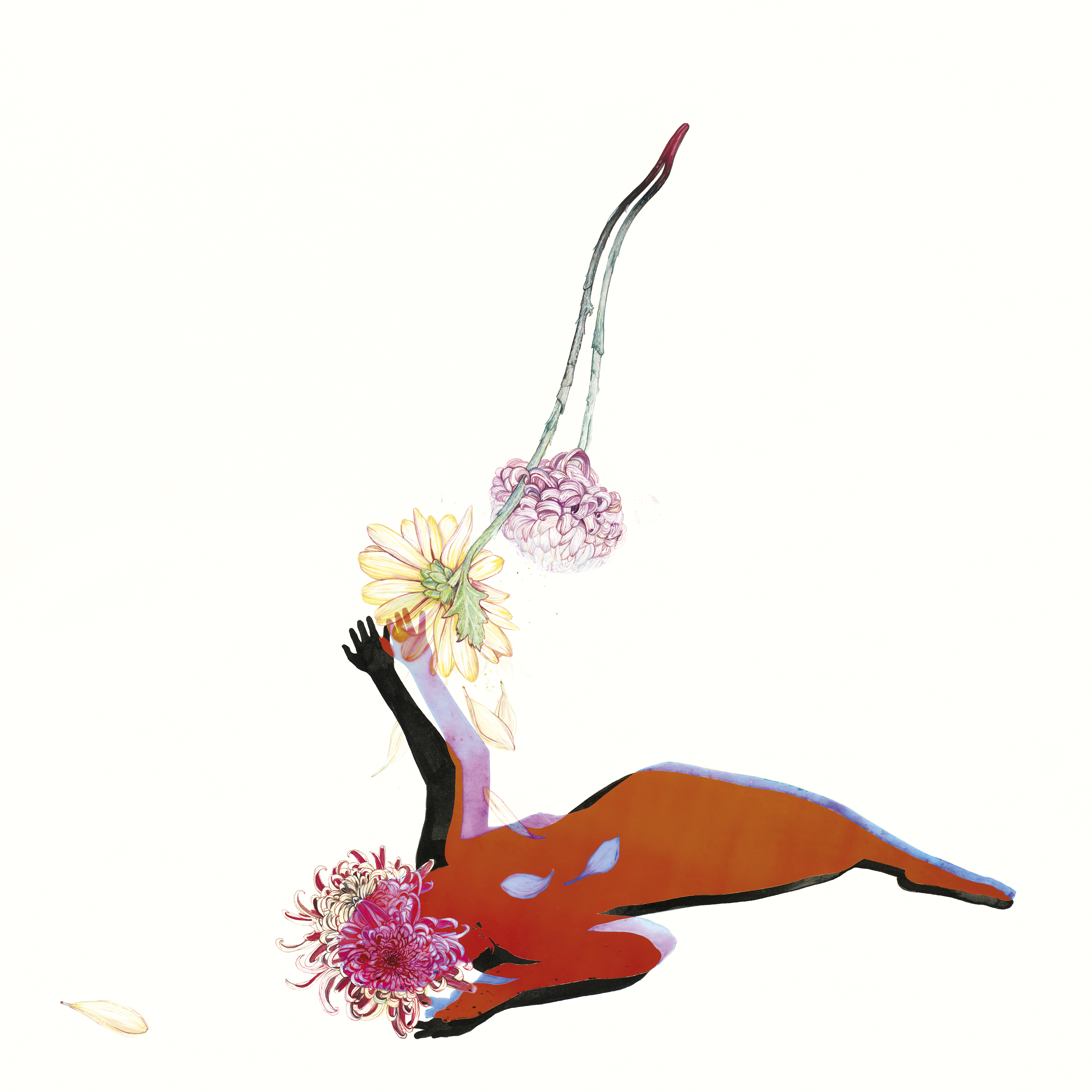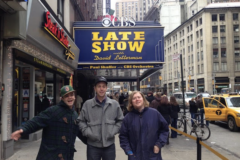Future Islands practice a kind of synth-pop asceticism. Over four albums and eleven years, the beloved Baltimore band have worked exclusively with a small handful of sounds: a tuneful and focused bottom end from the Peter Hook school of bass guitar; the reliable thwack of a snare drum on the second and fourth beat of every measure; one synth sound playing chords while another plinks out a wistful countermelody. The band adheres to the strictures of their chosen idiom with the devotion of folk music preservationists, playing through the repertoire of some lost culture whose sacred texts were “Age of Consent” and “Take on Me.”
That they’ve wrought such consistently affecting and rewarding music from these deliberately limited arrangements is a minor miracle, owing both to the strength of their songwriting and the imposing voice and persona of frontman Samuel Herring. He presides over the action like a wounded wizard, narrating the conflicts of love and friendship as if issuing proclamations to warring medieval armies. Even in Future Islands’ early days playing to packed crowds at small DIY venues in their hometown, Herring had star power, growling and keening and cavorting onstage in a cape, and in 2014, his singular charm helped them jump several rungs on the indie success ladder. The release of their fourth album Singles, and especially Herring’s histrionic singing and dancing during their instantly canonical Letterman performance of “Seasons (Waiting on You),” turned them into a national concern, the kind of act that tops Pitchfork year-end lists and sells out multiple nights in a row at New York City’s 3,000-capacity Terminal 5 nightclub.
Singles was an artistic as well as commercial success, a nearly flawless collection of songs, and it created an unlikely predicament for the band. They’d finally arrived at a fully realized expression of the aesthetic they’d been refining for years, but many new fans were coming to Singles as if it were Future Islands’ debut. How could they possibly follow it up? Rather than attempting to reinvent themselves, Future Islands continue plugging at their signature propulsive melodrama on The Far Field, their latest record. This time around, touring drummer Michael Lowry joined the core trio of Herring, bassist William Cashion, and keyboardist Gerrit Welmers in the studio, and arranger Patrick McMinn added orchestral flourishes to several songs. But the extra heft isn’t enough to save what is ultimately a spotty performance by Future Islands’ high standards.
The chorus of “Cave” unintentionally captures much of The Far Field’s spirit: “I can’t believe anymore.” The song itself is a highlight of the record, unapologetically bleak and with a clever synth line that seems to track both Herring’s vocal line and his emotional state. But elsewhere on the album, the band sounds competent yet uninspired, turning in only a handful of the subtle instrumental hooks that helped take Singles into the stratosphere. “Ancient Water” is an exception, with a lovely opening synth line that could have been ripped from a Calvin Harris production, but the rote composition doesn’t live up to its appealing instrumentation.
Herring is in a dour mood throughout, singing frequently about a relationship that seems to have ended. To varying degree, “Ran,” “Beauty of the Road,” “Through the Roses,” and “North Star” all deal in imagery of the vast distances he must traverse to be with his partner again. (Perhaps the Far Field of the title is where he’s headed.) “Ran” was a solid comeback single with a bellowing chorus, and “Beauty of the Road” has a restraint that places it among Future Islands’ best songs, but the lyrical conceit begins to wear thin after those two.
The Far Field can’t match its predecessor, but it isn’t without its highlights. Opener “Aladdin” is beguiling and delightful, with Herring expelling rapid-fire syllables and internal rhymes with the verve you’d expect from a guy who moonlights as an underground rapper. Debbie Harry stops by on penultimate track “Shadows,” which channels the endearingly goofy life-or-death theatrics of a Meat Loaf duet.
“Candles” throws out Future Islands’ new-wave blueprint entirely in favor of a fizzy and metallic take on reggae, suggesting an affinity for Can’s late-career flirtations with Jamaican music. The band luxuriates in the extra rhythmic space, with Cashion wandering all over his fretboard and Herring sliding slowly across the beat with a fluidity that rivals his own onstage dancing. Like the excellent and doomy “Fall From Grace” from Singles before it, “Candles” reveals an entire world that’s available to Future Islands when they step outside of the confines they’ve imposed on themselves. The band may be running up against the limits of their sound on The Far Field, but that doesn’t mean fans should stop believing.





